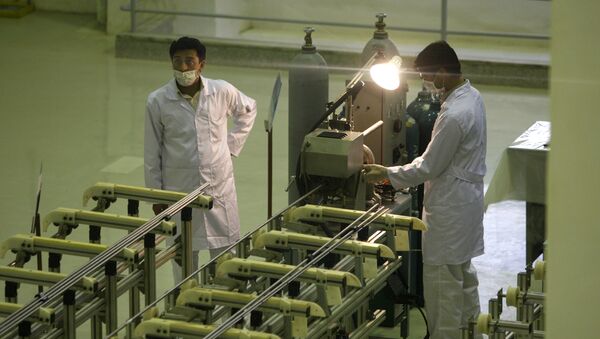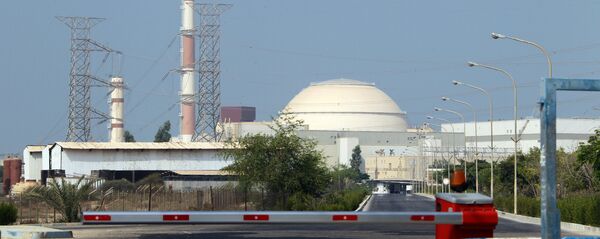Iran’s uranium enrichment rate has increased fourfold more than a week after Tehran suspended some of its obligations in the 2015 Iran nuclear deal, the Tasnim news agency cited an unnamed official in the Natanz nuclear facility as saying.
The statement, related to Iran’s low-enriched uranium, follows Iranian Foreign Minister Mohammad Javad Zarif confirming last week that Iran remains committed to its obligations under the Iran deal, also known as Joint Comprehensive Plan of Action (JCPOA), in the face of the unilateral US exit from the agreement in 2018.
READ MORE: Moscow: Tehran's Roll-Back on Nuke Deal Provoked by External Pressure on Iran
“We believe that escalation by the United States is unacceptable and uncalled for. We exercise maximum restraint in spite of the fact that the United States withdrew from [the] JCPOA last May”, Zarif underscored.
On 8 May, Zarif announced that Tehran would not be carrying out "some [of its] voluntary commitments" to the JCPOA, as the EU and other states had failed to resist pressure from the US, who pulled out of the accord last year and re-imposed sanctions on Iran.
He also claimed that Tehran's actions do not violate the nuclear deal and stressed that the country is not exiting the deal.
Tehran gave the other JCPOA signatories 60 days to ensure Iran's interests were protected under the agreement; otherwise, the Islamic Republic is ready to take further steps on scrapping the deal.
READ MORE: Europe Believes Iran Nuclear Deal Necessary, Favours Deal Implementation — Maas
Earlier, Iranian Parliament Speaker Ali Larijani said that the Islamic Republic would continue uranium enrichment in line with the JCPOA despite the US decision to leave the accord and slap sanctions on Iran's export of the product.
“Under the JCPOA, Iran can produce heavy water […] and based on the agreement, we have not carried out anything in violation of it. Therefore we will carry on with enrichment activity. You can either buy it or not,” Larijani pointed out.
On 8 May 2018, Trump announced his decision to withdraw from the JCPOA and reinstate wide-ranging sanctions on Tehran, including secondary sanctions targeting businesses and financial institutions of countries that have commercial relations with the Islamic Republic. Iran, China, Germany, France, Russia, the UK and EU reaffirmed their commitment to the deal after the US’ exit.



